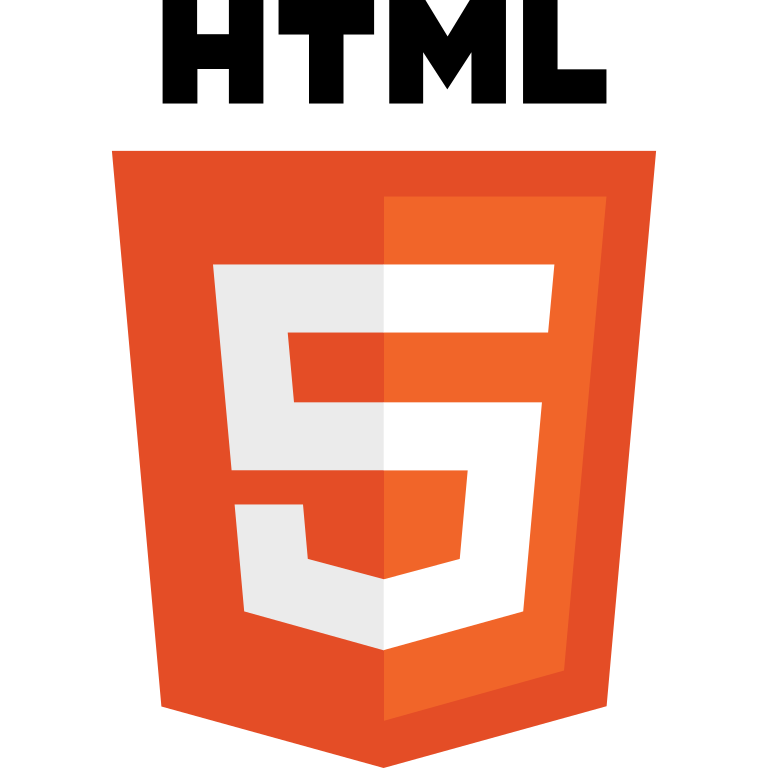
Abbaz Uddin
- Role
SEO Specialist
- Years of Experience
4.8 years
Skillsets
- SEO - 4 Years
- Technical SEO - 4 Years
- Content Marketing - 4 Years
- Keyword Research - 4 Years
- Ahrefs
- Google Analytics
- Google Search Console
- GTM
- HTML
- Off-page seo
- On-page seo
- SEMrush
- Trend Analysis
- Webflow
- Wordpress
Vetted For
- Roles & Skills
- Results
- Details
- SEO Specialist - Part-time (Remote)AI Screening
- 78%
- Skills assessed :Content Strategy, Problem Solving, Strategic Thinking, Bing Webmaster, Google Ads, Google Search Console, Landing Page, Onpage Optimization, SEMrush, Google Analytics, Google Tag Manager, Link Building, SEO
- Score: 70/90
Professional Summary
- Apr, 2022 - Present3 yr 6 months
SEO Specialist - Digital Marketing
GUVI - Jun, 2021 - Mar, 2022 9 months
SEO Executive - Digital Marketing
Uplers - Oct, 2020 - Jun, 2021 8 months
Content Marketing Specialist (SEO)- Digital Marketing
GetMyUni - Aug, 2019 - Oct, 20201 yr 2 months
Process Associate- Fintech
Genpact India
Applications & Tools Known

Google Analytics

Google Search Console

Semrush

Ahrefs

WordPress

HTML5

Google
.jpg)
Microsoft Bing

ChatGPT

yoast seo
Work History
SEO Specialist - Digital Marketing
GUVISEO Executive - Digital Marketing
UplersContent Marketing Specialist (SEO)- Digital Marketing
GetMyUniProcess Associate- Fintech
Genpact IndiaAchievements
- Successfully increased traffic for company blogs from 3K to 150K monthly visitors in 1.5 years.
Education
PG Certification in Digital Marketing and Communications
MICA & UpGrad (2021)Bachelor in Computer Application
Brainware University (2019)
Certifications
Google analytics- google
Google ads- display- google
Growing business with facebook- facebook
Interests
AI-interview Questions & Answers
Sure. So, uh, I've done my bachelor in computer application. And, uh, after that, I've done my PG diploma in digital marketing and communication. My first job was not a digital marketing role. Um, so I made a switch, uh, in the 11th month of the 1st job. Uh, my first job in the digital marketing role was, uh, as a content marketing specialist, like, where I put the hands on experience of, uh, managing content, everything, then I'm making sure that we are bringing in, uh, growth through content. And after that, I joined an agency where I, uh, got the opportunity to work with a lot of clients based out of based out of the, um, Americas and, uh, Europe. It was a great experience because I got, uh, to work with a lot of clients, uh, originating from different industries, facing different challenges and stuff. So during my tenure, I worked with, um, B2B SaaS, IT Services, b 2 c, Commerce, and a few others. Um, and that was my full on agency experience. And after that, I joined the Net Tech startup, but I'm currently handling, um, SEO for the premium category of our courses that we sell. So I take care of, uh, the strategy and a small team of 3 people, uh, that are working and reporting to me, uh, for our SEO growth. Other than that, I would also like to talk about, um, the media business that I ran, uh, from 22 2020 to 20 22nd. And in that, I was able to grow the media business from scratch to 100,000 visitors a month in, uh, in a span of 1 and a half years. And right now, one of the achievement that I would like to highlight for my current company is, um, our blog. When I joined in, uh, their current company, it was somewhere around 3,000 visitors a month. And after I took over the blog and the content team and the overall content cycle and everything, right now, the most latest month, which is April, we have received, uh, 150,000 visitors, uh, on the blog itself, which has also expedited the process of getting organic lead and improving the overall organic business, uh, for the company.
Yeah. So it, uh, right now, it's e e a t instead of just it. It has been recently, uh, updated by Google's guidelines. So, basically, it emphasizes on the quality of information to be talking about on a broad perspective. But if I could just summarize this, it would be, uh, person let's say, if somebody is writing a medical article or or something related to health care. Oh, sorry about that. So So it is basically just there to make sure that the person whoever is writing the content knows, uh, what he is talking about. Along with that, it also emphasizes on the authority of the website. So, basically, if a person is writing a health care article, if the person is not, um, not a doctor or a practitioner, it doesn't have the author. So it is basically a set of guidelines that Google provides us to make sure that the content that we put out there for the people to see has the has the expertise, authoritativeness, and, um, the other factors that are required to make sure that, um, we have the authority and we are giving the right kind of.
Well, uh, Bing Webmaster is, to be honest, is, um, just a copy of the search console that we have from Google. Overall, it's it's a great way for us to measure our performance on Bing because, um, Bing, as we all know, has been growing, but but, um, not not in a, um, exponential numbers, of course, but, um, we should also focus on being along with Google. It gives you a lot of information from uploading the sitemap, making sure that your website are getting indexed on Bing, making sure that you are able to rank on Bing for whatever reason, um, making sure that your your site doesn't have a lot of errors. Even though Google search console will give you all all of that, but if you just double check with web Bing Webmaster, it might give you something which is not present in the server. But this this is really the case. In most cases, Google search console will give you almost every issues that your website currently has. But in some cases, if there are something where, uh, Bing Webmaster is telling you that this is an issue and you are not not able to find it on Google search, of course, that's that's one way to making sure that the website doesn't have any issues, uh, in terms of the technicalities and overall, uh, improving the probability and, uh, indexation process of your website. So Bing Webmaster is overall a great tool for us to measure our performance on Bing Webmaster Bing and, um, just to improve our overall, um, performance and the growth on the link search engine as well.
Well, uh, Google Business Profile. During my tenure with, uh, Uplift, which is the marketing agency that I work with, um, I go also go to work with a lot of businesses that, uh, focus regionally. And I think Google Business Profile is a great way for us to optimize our business for, um, uh, regional searches. Right? What happens, um, on Google? And Bing has its own, um, Google Maps. Uh, sorry. Not Google Maps, but Google Business Profile alternative, which which we also optimized for. Um, so you can leverage it in many ways, to be honest. First off, you can make sure that your business profile is optimized for all the right information. So making sure that fundamentals of it is you make sure that, uh, you do not have any correct information. For example, working hours, uh, product pages that you can add, um, making sure that you are adding right UPMs to make sure that you are able to track where the peep where the user has come from. Um, you can add your phone numbers to get immediate to give immediate access to your potential customers. So along with that, you can also post your article excerpts on Google Business Profile, which will be shown whenever someone searches for something and you are able to match that intent. Um, so there are a lot of ways, but first, I would say that, uh, having a fundamentally strong business profile is the most important. When I say fundamentally strong, I basically mean the correctness of the information. The correct address of your website with the UTM tags, um, the phone numbers, and making sure that you are updating your files in whatever way is possible every now and then. Along with that, I would also recommend that you make sure that you are reading your reviews. And whenever there is some amount of negative reviews, you are taking action on that, replying to the customer, and making sure that, um, you are providing the best after sales services as well because that will matter a lot once we talk about organic search as a whole channel.
Well, Google Search Console is, uh, one of my favorite tools when I talk about organic growth because, uh, the kind of information and data that you get from the tool is unbelievable. First off, you get to see how people are searching and landing on your website. So what I mean by that is basically the exact keyword what people are searching. Um, second is you can also see where you are ranking for the corresponding keyword, um, and you can take action on that optimizing for those keyword, of course, not excluding keyword stuffing as a whole technique, but there are multiple ways that you can optimize for keywords that you can find from search console. Um, second is Google search console has a separate section. It mostly, you will see it on the notification tab that you get notification every now and then. So you get a lot of issues that Google tries to highlight it to the webmaster where the person can type the action. So whenever, let's say, Googlebot is not able to crawl a particular URL, you'll be notified about it, and you can take action to make sure that you fix it. So there are a lot of issues that as the website grows will be visible on the Google search console because, uh, the more the pages there are in particular website, the more issues that will be highlighted on Google search console. So if you are proactive and make sure that, oh, you are able to fix all the issues, whatever comes to, uh, on on the Google search console, It it's a great way for you to have a technically sound website.
I personally prioritize SEO task based on low effort, high outcome. And, uh, what it does is, basically, you will be able to focus on the areas which will give you immediate results. Right? Um, most of it, Google, SEO as a whole, uh, technique or general of growth has been criticized because, uh, it takes a lot of time. So if you focus on stuff which will show you output in, let's say, 3 months, um, it it will not be the right approach. Rather, we should focus on stuff that is, um, easy fixes, but the outcome of it will be sooner and it will be greater. And this also helps you in having a fundamentally great website. So, basically, the most fundamental issues when you are able to fix, um, you see greater outcome in a much more sort of span of time. And all the issues that comes after you optimize the fundamentals, Those can be fixed as we grow the website. Right? Now just to summarize, if you are able to prioritize your task in a way wherein it it it also aligns with the overall growth, uh, KPIs that we have. Um, but my approach personally is always is, uh, low effort, high outcome, fast outcome. This way, I'm able to, um, show the results which I want and also break the method SEO takes time and stuff like that. But, yeah, uh, that would be my approach.
The simplest thing that I can talk about it is whenever your CTR is something that you see that it's way too low depending on the industry. But on an average, I would say 3 to 4%, um, CTR is a good CTR. But, course, it might vary with, uh, with the current industry. But, uh, whenever you talk about CTR, if it is not doing great, the simplest thing that you can do is focus on the meta data, um, and analyze the top ten results from first to, uh, 10th and see what are the different approaches and techniques they have taken for, uh, for the meta title and try to come up with something which provokes a user to click on it. Of course, you will you should never deceive the user. If you promise something on the meta title, you should it should exactly match the intent after they land on the page. So, yeah, uh, you can start from the meta title, and, um, um, you you can input some power words, some numbers, um, whatever it is. Um, but if you optimize the meta title and the meta description, uh, your CTR will improve, uh, with that.
And sub sub features, there are a lot. So the first and foremost right now is SGE, which is the newest, um, thing on the block with the Rasa AI and JetDuty. So that's 1. 2nd is the featured snippet, which is also called as position 0 by a lot of, um, SEO tools and digital marketing softwares. And the third one is the regular searches, um, search ranking results that you see. And there are a few others. For example, the people you may know, uh, ask, uh, section. But for example, for SGA, right, If you want to optimize for your, um, content to appear on the s g, you will have to make sure that you align with the large language models. Along with that, you also optimize for NLP, which is the natural language processing. Um, that is all the AI that that works on top of. So if you optimize for them, um, you will be able to be visible on the SCE. But one server that has recently shown, I'm not sure, um, I I told the marketing agency that has done that. But, uh, with SGE, for example, with the feature snippet, you have to be on the 1st page of Google to be able to be visible or to achieve the feature snippet. But with s g, you can be on the 3rd or 4th or 5th position. You can still be visible on the s g, um, answer, which is the AI answer by Google. Um, and all the other regular search ranking pages, which is from the first edition, um, is the regular optimization that we do from the content to the on page elements to, uh, the meta title, the description, the focus keyword, whatever we are targeting. And for people also ask section, you can optimize your, uh, content. And towards the end of it, if you add some FAQs with the schema's intact, you will be visible on the people of the ask section.
Well, I think, um, we all saw this coming. Right? Uh, mobile as a whole way of accessing the Internet has is is becoming, uh, greater as we speak. So right now, um, in my current company, close to 60% of our user comes from smartphones. And, uh, and the rest of it predominantly is from, uh, the desktop. And that's one of the hard, um, truth that Google might be planning this thing for a very long time. Um, so in terms of impact, not a lot. Because in terms of indexing of indexing of page, right, whatever the ways we used to do previously, um, is the same thing. But the but the importance of mobile has been becoming a huge factor, um, in the last 5 years if if I talk about it. Because, um, when a person talks about user experience, right, smartphone is the major thing that we focus on whenever we are optimizing for the overall user experience. And when you optimize your website for the user experience or the smartphone, by default, your pages are optimized to get index faster. So, overall, I would say if you just focus on smartphone from a user experience perspective because the reason we focus so much on smartphone and not so much on desktop is because on desktop, there's a massive screen on top. So user has a lot of ways to navigate and stuff like that. On smartphone, there's a limited space where you have to make sure that the user is able to click wherever you want to take them, plus the button, the links, the hamburger menu, the logos, and everything has to be in a place where it is accessible and the user finds it a great experience to use the website. Now if I talk about indexing as a whole process, then I would say, if you just have a good user experience and your website is, uh, has has a great server and the technicalities of the website, for example, the robots or txt file, the no index pages to pages that you don't want to be, uh, indexed. So if all of these things are taken care of, then your indexing will not be facing any issues no matter whether it is mobile first or the legacy indexing process that we have.
Well, right now, I wouldn't talk about AMP, to be honest. AMP as a whole technology has gone down drastically, to be honest. Other than a few legacy news media, online news media website, no one is talking about AMP anymore. Because Google supported this project, like it's the next big thing. But to be honest, it did more harm than good. Because, for example, with AMP, your URL changes. So the brandability of your business itself is on stake. And as a whole technology, because I remember when I was running techvalue.com, which is a tech website, I implemented AMP. And during the initial stage of the website, it was getting a few clicks here and there. But later, I decided I will not focus on AMP as a whole. And then I removed AMP, thinking that, OK, this will kill the website in terms of the organic visitors that I'm getting. But to my surprise, the organic growth hasn't stopped. Rather, it has increased. So with AMP, the fundamental problem with this is the user experience. So the user experience is not there. AMP feels like you are reading a newspaper. So there is no interactivity of the user with the website. And you face a lot of problems in terms of your conversion rate optimization and stuff like that. So if you are not in the news business, where you are publishing news content, then I don't think any other business needs to worry about AMP right now. But at the same time, the whole idea of AMP was to have a faster website, which is accessible to a user in less than a few milliseconds. So if you just optimize your website for the speed and the user experience, either which ways, AMP's idea, you are following. So you just have to optimize your website for speed and user experience. Other than that, you don't have to worry about AMP.
Well, voice, again, it's, um, with the rise of AI. This is yet another thing that that, uh, SEOs has to worry about. Um, but voice has been here for a very long time, um, unlike s e and other, uh, VIN chats that we have right now. So if you optimize for NLP and large language models, right, if you optimize your website, um, with having that in mind, then you, by default, you optimize for voice searches as well. But the only difference here is with s with AI or someone typing on Google or on Bing and searching and accessing your website and someone speaking it out and then finding your information on the voice as a result is the only fundamental, uh, difference. Now the only thing that we have to think about is how do you optimize for people who speak and then you are able to, uh, come as a result. So if we if you know how people speak and ask question to Alexa or to, uh, Google Homes, then I don't think you have to, uh, be going crazy about it. Because a lot of things for example, right now, with Alexa, which is the biggest, I believe, in the market, Most of it, Amazon focuses with shopping, but we who give information and, uh, remain active on the Internet. If we are not an information based website, then I don't think you have to, um, worry about it a lot. But, of course, if you are an ecommerce store which also wants to optimize for voice search, if you just do it for if you just optimize your website for NLP and large language models, models, then I think your 80% of the job is done. Other than that, if you want to focus on voices, you just have to make sure that you align with people speaking out and then you are, um, how you are able to come as a result.